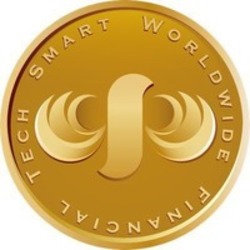Advertisement|Remove ads.
China’s Xiaomi Takes On Apple’s Silicon Supremacy At A Cheaper Price

Chinese smartphone maker Xiaomi unveiled a new smartphone powered by its home-grown chipset, the Xring O1, beating Apple Inc.’s (AAPL) latest chipset with a cheaper price point.
The company, led by Lei Jun, unveiled the Xiaomi 15S Pro on Thursday, expanding its Xiaomi 15 lineup in China. What’s different this time is that the 15S Pro is powered by Xiaomi’s custom-made chipset.
The company said it spent 13.5 billion yuan ($1.87 billion) over the past four years making its chipset, and the Xring O1 is the result of its efforts.
Featuring ARM Holding’s (ARM) design, the Xring O1 is designed using Taiwan Semiconductor’s (TSM) 3-nanometer fabrication process—the same one used by Apple for the iPhone 16 Pro’s A18 Pro chipset.
The iPhone 16 Pro is Apple’s latest flagship smartphone, and Jun says Xiaomi’s 15S Pro beats Apple’s device in some metrics, including playing a game without the device heating up too much, according to a CNBC report.
The Xiaomi 15S Pro costs 5,499 yuan ($764), whereas the iPhone 16 Pro starts at $999.
Despite the comparison, Jun maintained that Apple’s chipset is better. However, he added that beating Apple’s flagship chipset in certain metrics highlights Xiaomi's efforts.
This isn’t Xiaomi’s first attempt at designing a custom chipset—the company tried it in 2017, too, but gave up and switched back to Qualcomm Inc. (QCOM) and MediaTek.
Apple, on the other hand, has witnessed a decline in its market share amid intensifying competition from its Chinese rivals. Its global market share in 2024 fell to 18%, down from 19% in 2024.
Apple’s stock is down 19.24% year-to-date.
1 Yuan = 0.14 USD
For updates and corrections, email newsroom[at]stocktwits[dot]com.
Also See: Trump's Tax Bill Heads To Senate After Clearing House, Projected To Add $3.8T To Fiscal Deficit













/filters:format(webp)https://news.stocktwits-cdn.com/large_Patrick_Witt_d5f3eaa4da.webp)
/filters:format(webp)https://news.stocktwits-cdn.com/Anushka_Basu_make_me_smile_in_the_picture_b92832aa_af59_4141_aacc_4180d2241ba8_1_2_png_1086e0ed8c.webp)
/filters:format(webp)https://news.stocktwits-cdn.com/large_Brian_Armstrong_Coinbase_60d65adb96.webp)
/filters:format(webp)https://news.stocktwits-cdn.com/large_immunitybio_stock_jpg_9eab8bde17.webp)
/filters:format(webp)https://st-everywhere-cms-prod.s3.us-east-1.amazonaws.com/unnamed_jpg_9dff551b50.webp)
/filters:format(webp)https://news.stocktwits-cdn.com/large_lowe_logo_resized_jpg_b9cb8f6035.webp)
/filters:format(webp)https://news.stocktwits-cdn.com/Aashika_Suresh_Profile_Picture_jpg_2acd6f446c.webp)
/filters:format(webp)https://news.stocktwits-cdn.com/large_grocery_shopping_inflation_original_jpg_3bbd9af886.webp)
/filters:format(webp)https://news.stocktwits-cdn.com/jaiveer_jpg_280ad67f36.webp)
/filters:format(webp)https://news.stocktwits-cdn.com/large_Getty_Images_2247547661_jpg_4e03c3ca3f.webp)